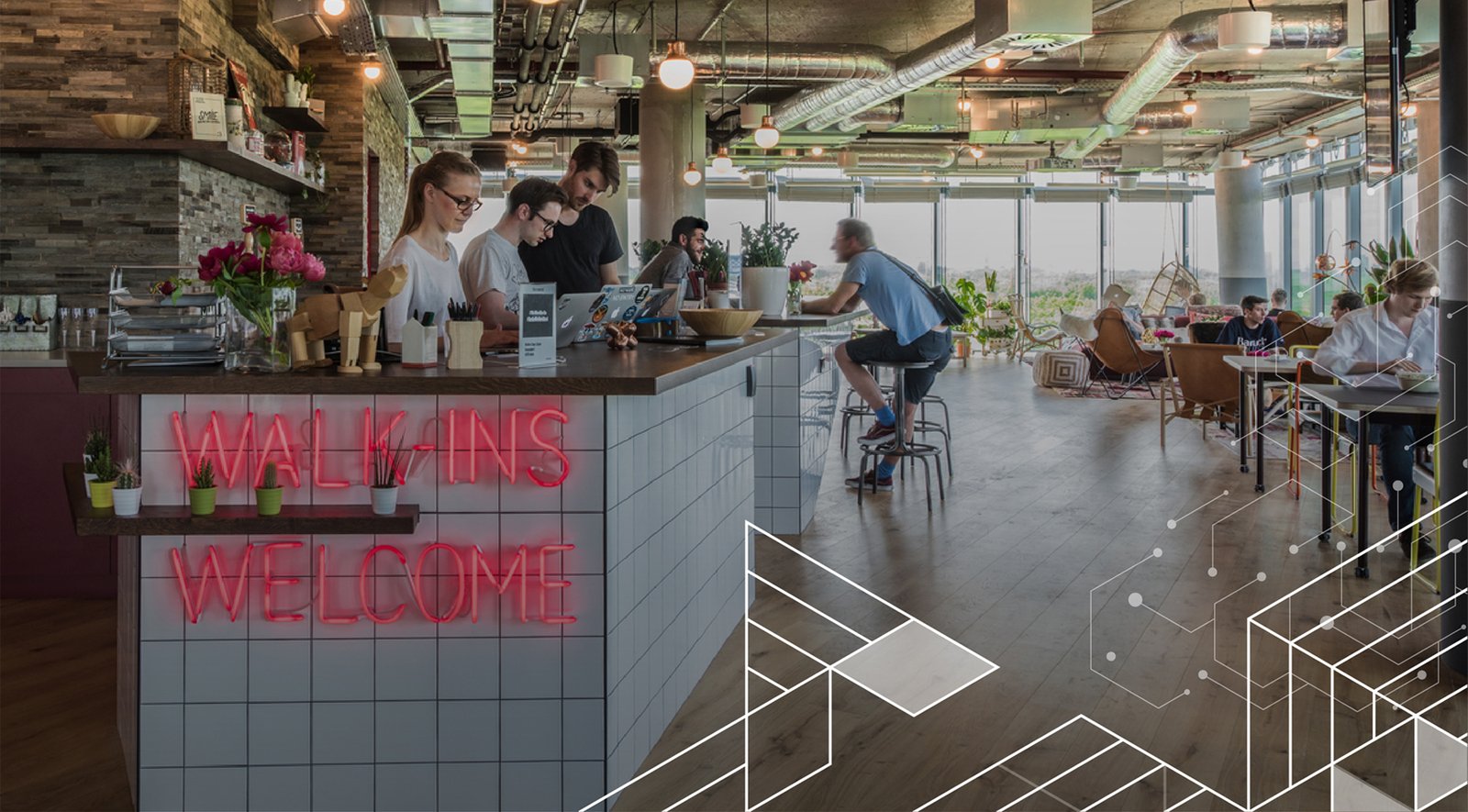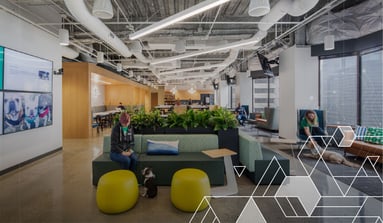
In a landscape of continuous disruption, the tech industry has been at the forefront of redefining the concept of workplace. To help executives meet the pace of change, we developed TECHscape, a collection of research, thought leadership insights and data on trends driving future workplace decisions.
Future-gazing
There has never been so much turnover in real estate. Millions of square feet of office building space, including those occupied by tech companies, is currently underutilized. CBRE reports a 42% activity hike in its “Tech 30 Cities” from the end of 2019 to August 2020, revealing there are more sublease space and co-working options available than at any other time in history.
For tech companies, this rapid change requires a clear, enterprise-level real estate strategy that enables maximum flexibility for unforeseen peaks and valleys in workplace occupancy and space needs. This ensures that their global portfolios are resilient in unpredictable market conditions.
At Unispace, we call this approach future-gazing; proactively mitigating or preventing challenges to ensure the entire portfolio is flexible, fluid and working for our clients.
The recession has caused tech companies to look at different ways to save costs, which includes examining their workplace strategies and reevaluating their real estate portfolios. Our recent research has indicated that moving forward, the standard office will be 20% smaller on average.
As companies adapt to new ways of working, many are looking at reconfiguring their workplace strategies to include fluid, distributed and low-cost models, and blending home working with multiple smaller workplace hubs.
Fluidity and flexibility
The workplace model chosen by a tech firm may be ideal for a moment in time, but is it flexible enough to evolve with abruptly changing circumstances like Covid-19? Office space is typically the second-biggest cost for organizations, and some research suggests that office space can be vacant up to 40% at any one time. That said, tech companies have a history of exponential growth, forcing them out of office space ahead of their lease expirations, even during times of economic contraction.
Unispace collected 2,500 responses to our 2021 WorkReady Survey, which highlighted the growing need for workplace flexibility:
- Optimizing real estate portfolios – 47% of Unispace clients surveyed plan to make changes to their portfolios, with 27% of respondents looking to decrease their overall real estate footprints. While 30% don’t plan on changing their portfolios, they are looking to optimize the spaces they have to suit flexible ways of working.
- Driving portfolio efficiency – collectively our clients are aiming to achieve over US$300M in savings across their global portfolios through space reduction and/or cost avoidance over the next five years.
- Decentralization and the rise of the suburbs – Parramatta's office demand is approximately 30k sqm – we see this as a move away from the city to more convenient and cost-effective hub and home portfolio models. This along with creation of urban communities through the growth of suburban co-working space and even live-work spaces as part of residential developments will impact CBDs.
- New purpose of the office – 49% predict that home working will remain but face-to-face collaboration is still important. 44% expect people to come into the office for specific face-to-face activities.
- Greater employee engagement – 63% of employees feel going into work contributes to a sense of community, and 58% say being in the office gives them a greater connection to the organization.
What do these insights mean? That now is the time for tech to test new workplace concepts, draw people back into the office for strategic activities and find new ways of measuring performance to validate the new workplace paradigm.
Co-working in tech
Tech firms and startups, more than any other client type, have heavily relied on co-working spaces managed by companies such as WeWork, Regus Corporation and Industrious during explosive peaks in staff growth. In fact, tech firms and startups represent the bulk of co-working users.
With all of the supply available, tech firms are well positioned to negotiate better rates or value-engineered enterprise contracts with co-working providers. Additionally, co-working spaces may shore up specific gaps in some tech workplaces like quiet, private offices for focus work. The pandemic has forced co-working operators to readjust their space policies to reflect increased requests (76% higher share) for private offices compared to collaborative group space. This could provide an inexpensive, ideal option for workplace overflow and minimize any disruption to critical business operations.
Interested in reading the full book?


